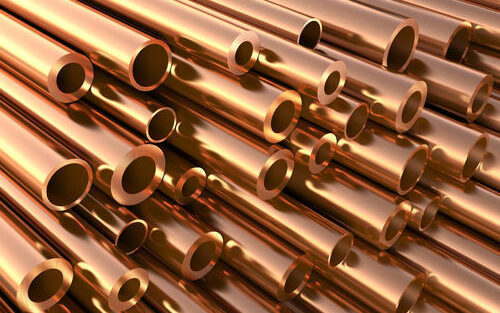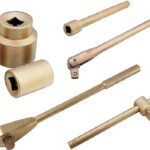Beryllium copper is a lightweight, robust, and durable alloy that can withstand severe temperatures. It is widely employed in electrical and mechanical applications due to its good conductivity and machinability. However, beryllium copper can be poisonous if not handled properly, so use caution while working with this substance.
What type of metal is Beryllium Copper?
Beryllium copper is just copper with around 3 percent beryllium added, along with additional components. It is known to be lighter than steel, making it an excellent choice when weight is an issue or worry. It is also incredibly robust, making it suitable for producing springs and gears.
Any beryllium copper provider will tell you that it is also extremely durable and resistant to corrosion and wear, making it ideal for applications in severe environments such as the marine industry or aircraft. The metal is easy to work with and shape using typical machining techniques. However, beryllium copper can be dangerous if not handled correctly. Beryllium dust and vapors can be toxic if inhaled or consumed. It is critical to take precautions when dealing with this substance, such as wearing a respirator and gloves.
What is Normal Copper
Regular copper is a lightweight metal noted for its high thermal and electrical conductivity. It is malleable and ductile, with a distinctive pinkish-orange tint. Copper is commonly employed as a heat and electrical conductor, as well as in building and various metal alloys such as jewelry, naval equipment, coinage, and temperature measuring devices.
How do they differ from one other?
While beryllium copper and ordinary copper may have similar names and qualities, they are not the same material and should not be used interchangeably. Beryllium copper is a copper alloy containing cobalt, iron, nickel, zinc, and, most crucially, beryllium. The inclusion of other metals to beryllium copper provides the alloy special features.
Their Strength and Ability To Form
Regular copper is believed to be a soft metal, however beryllium copper is noted for its strength. Beryllium copper has the greatest strength rating of all copper-based alloys. This strength allows it to be hardened after forming, making it an excellent material for producing springs. It may also be formed in a variety of ways, making it quite versatile.
Their thermal and electrical conductivity.
Copper has long been known as an excellent heat and electrical conductor, as any beryllium copper dealer will tell you. It has been commonly utilized in wires and cookware for many decades. Although beryllium copper is slightly less conductive than ordinary copper, it has other advantages besides being a good conductor, making it the metal of choice for many.
In Their Applications
When you question a provider of beryllium copper, he will tell you that normal copper is typically utilized when aesthetics or “looking good” are required. On the other hand, beryllium copper is highly desired for its hardness and strength rather than its look.
Understanding what distinguishes beryllium copper from normal copper is vital when determining which material is best suited for your project. Though ordinary copper is a good conductor and is frequently chosen for its appearance, beryllium copper has superior strength and formability. It is critical to note that, while beryllium copper has many desirable properties, it is also a dangerous metal, and necessary care must be taken during handling, machining, and disposal to avoid any health hazards.




